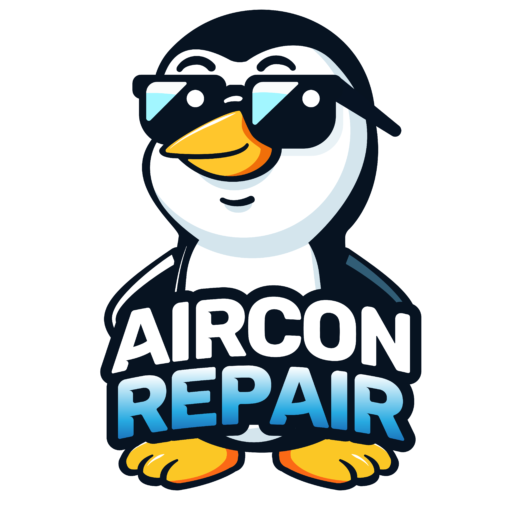A well-maintained air conditioning system is essential for keeping your home comfortable and energy-efficient, especially in Florida’s hot and humid climate. Ignoring regular air conditioning maintenance can lead to costly repairs, increased energy bills, and unexpected breakdowns. Recognizing early warning signs—such as weak airflow, unusual noises, or frequent cycling—can help prevent major issues. This guide outlines the key indicators that your AC needs servicing and why routine maintenance is crucial. By staying proactive, you can extend your system’s lifespan, improve performance, and ensure consistent cooling throughout the year. Don’t wait for a breakdown—keep your AC running smoothly!
Why Air Conditioning Maintenance Matters
Keeping up with air conditioning maintenance is crucial for comfort, energy efficiency, and preventing costly breakdowns. Ignoring minor issues can lead to major repairs, higher electricity bills, and even complete system failure.
If you notice your air conditioner struggling to cool your home, making unusual noises, or showing other warning signs, it’s time for a professional inspection. This guide covers the most common indicators that your AC needs maintenance and why regular servicing is essential—especially in Florida’s humid climate.
1. Reduced Cooling Efficiency
If your air conditioning system isn’t cooling as effectively as before, it might be struggling due to:
- Dirty or clogged air filters restrict airflow
- Low refrigerant levels reducing cooling power
- Failing compressor affecting performance
- Blocked or leaking ducts causing uneven temperature distribution
A routine air conditioning maintenance check can diagnose and fix these issues before they escalate.
2. Unusual Noises Coming from Your AC
A properly functioning AC should run quietly. If you hear any of the following noises, it’s a sign of trouble:
- Hissing or bubbling: Possible refrigerant leak
- Grinding or screeching: Motor or belt issues
- Banging or rattling: Loose or broken components
Addressing these sounds early can prevent further damage to your system.
3. Increased Energy Bills Without Increased Usage
A sudden spike in your electricity bill without any significant change in usage is a red flag. Common culprits include:
- Dirty condenser coils forcing your AC to work harder
- Leaking ducts causing cool air loss
- Aging components reducing efficiency
Regular air conditioning maintenance ensures that your unit runs at peak efficiency, helping to keep energy costs under control.
4. Uneven Cooling or Warm Spots in Your Home
If certain rooms are significantly warmer or cooler than others, your AC may have:
- Blocked or leaky ductwork
- A malfunctioning thermostat
- Improper unit size
An HVAC technician can diagnose whether it’s a simple airflow issue or if your system needs an upgrade.
5. Frequent Cycling (Turning On and Off Too Often)
Short cycling—when your AC turns on and off frequently—is often a sign of:
- A faulty thermostat misreading temperatures
- Refrigerant issues affecting cooling cycles
- Electrical problems impacting operation
Frequent cycling increases wear and tear, shortening your AC’s lifespan and driving up energy costs.
6. Unpleasant Odors from Your AC System
Bad smells coming from your air conditioner should never be ignored:
- Musty smells: Mold or mildew in the ducts or unit
- Burning odors: Electrical or motor problems requiring urgent attention
Regular maintenance, including coil and filter cleaning, can prevent these issues.
7. Water Leaks or Excess Moisture
Air conditioners naturally produce condensation, but visible water leaks or excessive moisture can indicate:
- A clogged condensate drain line
- Refrigerant leaks
- Frozen evaporator coils
Left unchecked, these problems can cause water damage and mold growth.
8. Weak Airflow from Vents
If you notice weak or inconsistent airflow, potential causes include:
- Clogged air filters restricting circulation
- Dirty evaporator coils reducing cooling capacity
- Duct obstructions preventing proper airflow
- A failing blower motor struggling to push air
Replacing filters regularly and scheduling air conditioning maintenance can improve airflow and efficiency.
9. Thermostat Malfunctions
If your AC isn’t responding correctly to thermostat settings, it may be due to:
- Sensor issues causing inaccurate temperature readings
- Electrical problems disrupting communication
- Outdated thermostat models needing an upgrade
Upgrading to a smart thermostat can enhance efficiency and give you better control over cooling schedules.
10. The Age of Your Air Conditioning Unit
If your AC is over 10–15 years old, frequent repairs and declining efficiency may indicate it’s time for a replacement. Newer models offer:
- Higher energy efficiency (lower bills)
- Improved cooling performance
- Smart features for better control
Replacing an aging unit with a high-efficiency model can provide long-term savings and improved comfort.
Importance of Regular Air Conditioning Maintenance
In Florida’s hot and humid climate, routine air conditioning maintenance is essential. Experts recommend scheduling a professional tune-up at least once a year, ideally before summer, to:
- Ensure optimal performance
- Reduce the risk of breakdowns
- Improve energy efficiency
- Extend your AC’s lifespan
Ignoring maintenance can lead to expensive repairs or early system failure.
Conclusion
Recognizing these warning signs early can save you from costly repairs and keep your home comfortable year-round. If you’ve noticed any of these issues, don’t wait—schedule air conditioning maintenance with a trusted HVAC professional today.
Regular maintenance not only extends the lifespan of your AC unit but also ensures it operates efficiently, keeping energy bills low and indoor air quality high. Stay cool, save money, and enjoy a hassle-free summer with a well-maintained air conditioning system!
